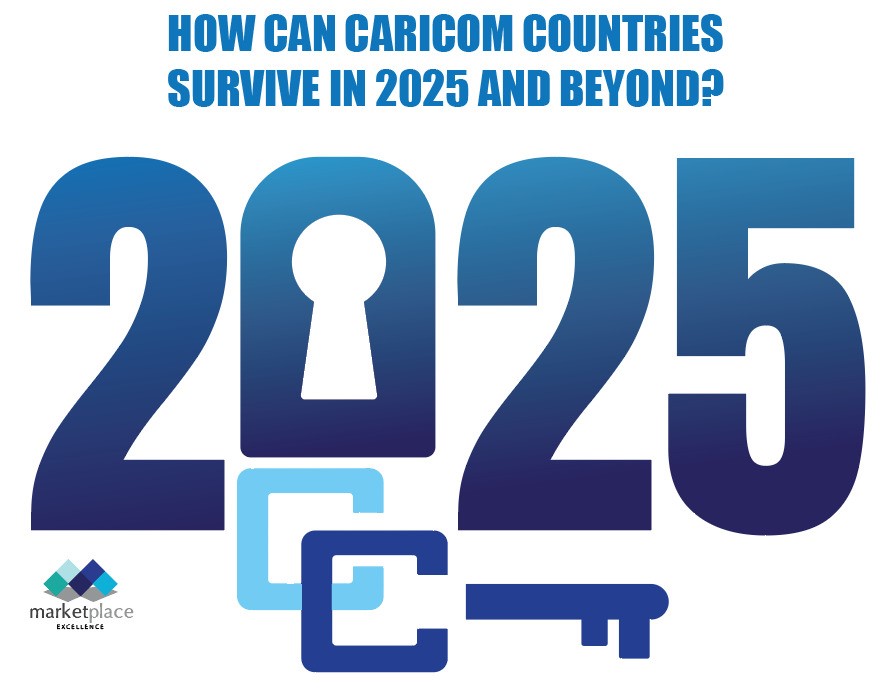“Patient endurance is what you need now, so that you will continue to do God’s will. Then you will receive all that he has promised.”- Hebrews 10:36
Mia Mottley, now in her second term as Prime Minister of Barbados, has overseen the nation’s economic recovery following a 10-year monotonic decline. This decline was furthered by the triple blows of the COVID-19 pandemic: loss of life, loss of income, and loss of learning.
Prime Minister Mottley has made global headlines in recent years for her frank, no-nonsense, yet solution-oriented addresses on issues like climate change, drug trafficking, gun violence, and the development of small island states. She has also spoken on equitable global financial reforms and mobilizing the collective African-Caribbean brainpower, creativity, discipline, resilience and capital.
Now, as we stand on the precipice for 2025, she has assumed the Chairmanship of the Caribbean Community (CARICOM). In her New Year message, she declared, “In our unity lies our strength. This must be our truth and our rallying cry, and we must act with one voice and one purpose.”
A condensed outline of the critical opportunity pillars that could shape CARICOM’s future follows.
1. Harness the Fourth Industrial Revolution
The Fourth Industrial Revolution has facilitated innovation by democratizing access to tools like artificial intelligence and blockchain technology. These advancements could redefine industries such as agriculture, finance and tourism. To stay competitive, Caribbean nations must embrace these technologies, invest in digital infrastructure, and foster environments that encourage technology startups with a global market reach.
2. Leading in Renewable Energy
Renewable energy and carbon neutrality offer a clear path to economic resilience. CARICOM countries are uniquely positioned to become global leaders in clean energy thanks to an abundance of natural resources like sunshine, wind, geothermal energy, and ocean thermal powers.
3. Building Smart Partnerships
Strategic alliances with wealthier nations are essential to supplement our limited resources. These partnerships should prioritize knowledge transfer, enabling access to global markets, and supporting climate adaptation initiatives.
4. Mobilize Domestic Savings
National savings hold tremendous potential for unlocking capital. Governments can propel development by offering incentives such as tax breaks or government guarantees for investments in renewable energy, technology, and enterprise development. Financial literacy campaigns can educate citizens about the transformative potential of their savings, fostering a culture of entrepreneurship and economic activity.
5. Tapping into the Caribbean Diaspora
The Caribbean diaspora is an invaluable asset. These communities contribute intellectual power, financial remittances, direct investments, and advocacy. By actively engaging the diaspora, CARICOM countries can bolster growth efforts beyond their shores.
6. Ensuring Strong Leadership
While “benevolent dictatorship” may spark controversy, it underscores the importance of decisive leadership. CARICOM governments must demonstrate political will, prioritize long-term planning over short-term populism, and uphold transparency. Strong leadership will expedite reform and build public trust.
7. Expanded Global Market Access
For economic diversification, CARICOM countries must capitalize on niche markets such as eco-tourism, creative industries, and specialty agriculture products. Trade agreements and targeted marketing campaigns can amplify the region’s global visibility and presence, boosting competitiveness.
8. Tackling Debt Restructuring
Finally, debt restructuring offers a lifeline for highly indebted nations. By negotiating more favorable repayment terms and linking them to economic growth, CARICOM countries can free up resources for development while maintaining fiscal sustainability.
In 2025 and beyond, survival will require a collective mindset focused on resilience, innovation and strategic foresight. Despite many challenges, CARICOM countries have overcome adversity before. Through the right partnership strategies, we can not only survive but thrive in the years ahead.

(Dr. Basil Springer GCM is a corporate governance adviser. His email address is basilgf@marketplaceexcellence.com. His columns may be found at https://www.nothingbeatsbusiness.com).
